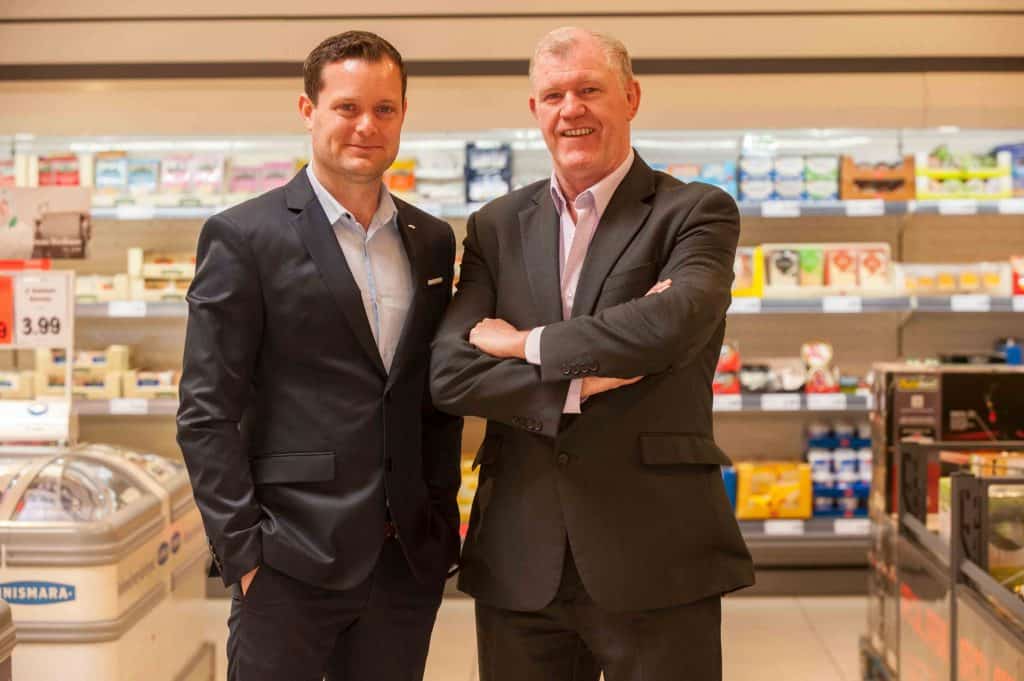Stephen Slattery, Founder/CEO, and Michael Slattery, Founder/COO, Zeto (Photo: Brian Lougheed)
Zeto has initiated an initial coin offering (ICO), which it is using to generate funding for its food-safety refrigeration systems.
Zeto, the independent cloud-based software company that allows users manage refrigeration units, has initiated an initial coin offering (ICO), which it is using to generate future funding. The Cork firm is set to raise €20 million through ICOs, but what is an ICO?
ICO breakdown
An ICO is a mechanism used by companies, predominantly in the cryptocurrency space, to gain funding, encourage investment, and entice users to avail of a particular service or product on offer.
It works similarly to an initial price offering (IPO) in traditional stock markets, where shares are issued to the general public for the first time.
Zeto will be among Ireland’s first companies to successfully raise funds from an ICO. Already it has raised €500,000 from the cryptocurrency community with investors from as far away as Brazil, Australia, Oman, Spain, among others, availing of a pre-sale discount.
In total, €20 million is expected to be raised by Zeto until the end of the ICO process in July 2018.
What does Zeto do and how does it garner investment through an ICO?
Zeto uses big data and Internet of Things (IoT) technology to help retailers ensure food safety. The Musgrave Group, Lidl and Circle K are among the big names using the Zeto solution.
The company was established in 2011 and is supported by Enterprise Ireland and Kernel Capital.
Stephen Slattery, CEO of Zeto, said:
Blockchain technology is new certainly, but this powerful new technology provides a secure solution that can deliver enormous value to the food retail sector, where we have been working with clients for many years. We understand the challenges that retailers face, and food safety is the number-one issue.
He continued: “The use of innovative technology such as IoT in our current solutions and our insights in the commercial refrigeration market have positioned Zeto ideally to roll out blockchain-enabled ZetoChain, giving retailers an end-to-end recorded solution that will help them improve efficiency, save money, protect their brand and introduce full transparency into their cold chain.”
How has this already-successful company been able to obtain even more funding through the cryptocurrency space?
The ICO will be used to develop and formulate ZetoChain, the blockchain-enabled IoT solution providing enhanced security for food safety. Slattery said:
The use of innovative technology such as IoT in our current solutions and our insights in the commercial refrigeration market have positioned Zeto ideally to roll out blockchain-enabled ZetoChain, giving retailers an end-to-end recorded solution that will help them improve efficiency, save money, protect their brand, and introduce full transparency into their cold chain.
A blockchain is a ledger system that takes a record of every transaction in a cryptocurrency system. These are known as ‘blocks’ and include the secure sending and receiving of cryptocurrency transactions across a network from one node to another.
Ronan Daly Jermyn and a ‘Big 4’ accounting firm are working closely with Zeto to ensure a robust legal and financial framework for this particular ICO.
What other companies are using ICOs?
Ian Hyland of Business & Finance with Joe Arthur, Dee Arthur and Fran Rooney of Mingo
Mingo is another Irish company that has used an ICO to generate interest. The messaging company also offers eSports functionality where users can pay to compete in micro tournaments for a MingoCoin fee. A MingoWallet is also in place to store your MingoCoin.
Going in this ICO direction encourages early adoption where the user will benefit from the use of the product/service by gaining coins, early access to services or whatever the individual company wishes to offer.
EnerPort, a new product launched in March at the International Energy Research Centre (IREC) Annual Conference, aims to accelerate peer-to-peer energy trading in Ireland through blockchain technology.
The product is also being used to withstand challenges in transactions in distributed energy networks and to bring about stronger consumer engagement within that market.
At the IERC Conference in Cork, IERC Director Professor Tony Day said: “The EnerPort project will prototype new ways to address the challenges currently slowing the progression of distributed networks. It will provide evidence of how policies, regulations and physical networks need to evolve to ensure Irish citizens have the strongest level of control on their energy bills. Ultimately, EnerPort provides a unique opportunity for Ireland to position itself as a research leader in an area which is expected to have significant growth in the near future.”

